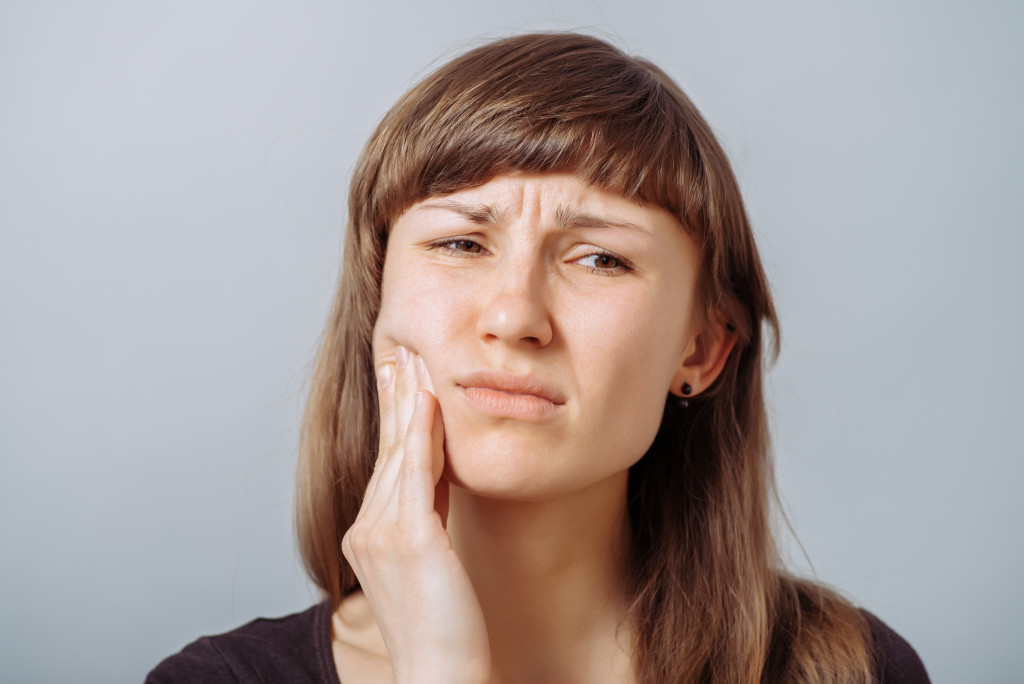- Bruxism is a common dental problem characterized by unconscious teeth grinding and clenching, often caused by stress or sleep disorders.
- It can lead to serious dental problems, jaw pain, tension headaches, sleep disturbances, and digestive issues.
- The physical discomfort caused by bruxism can also negatively impact a person’s emotional and mental health.
- Dealing with bruxism can involve dental procedures like teeth replacement and mouth guards or splints.
- By understanding and addressing the symptoms of bruxism, individuals can improve their overall health and quality of life.
Bruxism, or the grinding and clenching of teeth, is a common dental issue that affects people of all ages. Some people may grind their teeth at night while they sleep, while others grind their teeth during the day without even realizing it. While it may seem like a minor problem, bruxism can negatively impact your daily life. Here’s what you need to know about bruxism, how it can affect your life, and ways to deal with it.
What is Bruxism?
Bruxism is a condition characterized by the grinding or clenching teeth, often unconsciously, during sleep or throughout the day. The condition can be triggered by various factors such as stress, anxiety, sleep disorders, abnormal biting, or missing or crooked teeth.
In many cases, individuals may not know they are grinding their teeth until symptoms like jaw pain, headaches, or tooth sensitivity become apparent. Bruxism can lead to further oral health issues if left untreated, including wearing down of the teeth, gum damage, and temporomandibular joint disorder (TMJ). Here are various ways it can affect your life.
1. Dental Problems
Bruxism can cause dental problems, such as tooth sensitivity, worn down teeth, and tooth loss. Over time, the constant grinding and clenching can wear away at the enamel on your teeth, making them more susceptible to damage and decay. Additionally, the pressure from grinding can cause teeth to crack or even break, heightening the risk of tooth loss.

2. Jaw Pain and Tension Headaches
Bruxism can also have negative impacts on your jaw and head. The constant tension caused by grinding can lead to jaw pain, popping or clicking sounds in your jaw, and even TMJ disorders. Furthermore, the pressure on your jaw can also cause tension headaches, ranging from mild to debilitating.
3. Sleep Disturbances
For those who suffer from nighttime bruxism, it can significantly interrupt your sleep quality. The sound and sensation of grinding can wake you up in the middle of the night, leading to exhaustion and heightened stress levels throughout the day.
4. Digestive Issues
Surprisingly, bruxism can even impact your digestive system. Constant grinding can increase stomach acid production, resulting in acid reflux or heartburn. In more severe cases, bruxism has been linked to irritable bowel syndrome (IBS) and other gastrointestinal disorders.
5. Emotional and Mental Health
The physical symptoms of bruxism can, in turn, negatively impact your emotional and mental health. Chronic pain, lack of sleep, and digestive issues can increase stress and anxiety. Additionally, the look and feel of worn or damaged teeth can decrease self-esteem and insecurity.
Dealing With Bruxism
There are various ways to deal with bruxism. Here are four ways to do that:
Replacing Teeth as a Solution to Bruxism
One way to manage bruxism is to replace damaged or missing teeth. This can be accomplished through dental procedures like implants, bridges, or dentures, all of which are provided by teeth replacement services. They can also help diagnose you with the disorder and teach you more about it.
When teeth are missing or worn down due to grinding, the remaining teeth may become overloaded, leading to further tooth wear and damage. Replacement of these teeth aids in distributing the forces of grinding or clenching more evenly, potentially reducing the damage and pain caused by bruxism.

Stress Management Techniques
Another practical approach to managing bruxism is the adoption of stress management techniques. High stress and anxiety levels are common triggers for teeth grinding, so practices such as yoga, meditation, or mindfulness techniques can be beneficial. Regular exercise and maintaining a balanced diet can also contribute to overall stress reduction. With regular practice, these techniques can assist in reducing the frequency and severity of teeth-grinding episodes.
Mouth Guards and Splints
Using a mouth guard or splint can also provide relief from bruxism. Custom-fitted by a dentist, these devices are worn during sleep to provide a barrier between the upper and lower teeth, preventing damage from grinding and clenching. They also help reduce jaw tension and alleviate associated pain and discomfort. This method doesn’t cure bruxism but is an effective strategy for managing symptoms and preventing further dental damage.
While seemingly harmless, Bruxism can have far-reaching effects on a person’s overall health. The symptoms not only extend to dental problems but also encompass physical discomfort and mental health issues. However, one can successfully manage this condition by paying attention to these signs and seeking professional help. Remedies include dental solutions like teeth replacement, stress management techniques, and protective devices such as mouth guards. By taking a proactive approach and understanding the available options, one can effectively address bruxism, thereby greatly improving their quality of life.
